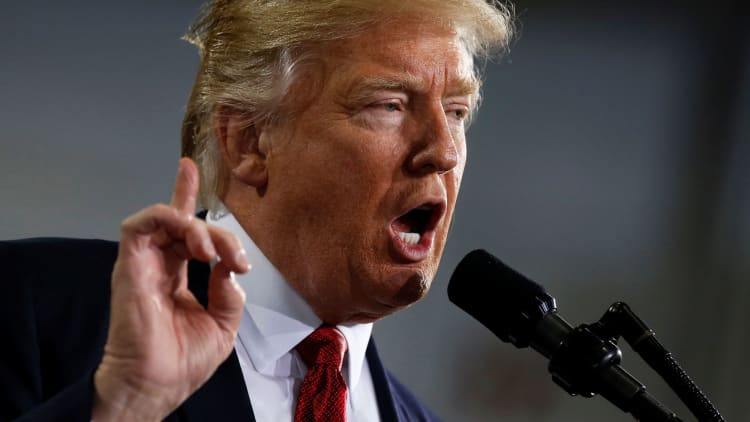
Republicans are scrambling to make their plan for repealing and replacing Obamacare more palatable to older Americans and low-income families.
But amid the 21 pages of changes to the bill that lawmakers released Monday night, one clear winner stands out: rich people.
The last amendments on the list would end Obamacare taxes this year instead of in 2018, a victory for conservatives who have criticized GOP leadership for not phasing out the law fast enough. But what exactly are those Obamacare taxes?
One is an extra 0.9 percent Medicare payroll tax on high-income earners. It applies to individuals making more than $200,000 and couples earning more than $250,000. The Tax Policy Center estimates that 99 percent of households won't be affected by this change. But the top 1 percent will enjoy an average tax cut of $7,300.
Another Obamacare tax that takes a big bite out of the bank accounts of the wealthy is the tax on net investment income, or money earned outside of salary or wages. This is separate from the capital gains tax and was estimated to cost the top 1 percent of households an average of nearly $25,000 a year, according to the Tax Policy Center.
Adding up those two tax cuts alone provides the richest Americans an average annual savings of $33,000. That compares with an average of $180 for all households, the Tax Policy Center estimates.
The disparity is partly by design: The point of Obamacare was to expand health coverage for the poor by taxing the rich. So it's no surprise that dismantling the law would benefit the wealthy even as the Congressional Budget Office estimates that 24 million people would lose insurance coverage by 2026 and that premiums for older Americans would rise.
Republicans' initial proposal came under heavy fire from both sides of the aisle, and the amendments submitted Monday seek to alleviate some of that criticism. They include a billion-dollar stability fund to help pay for bigger tax credits for seniors. They set a lower threshold for households to begin deducting their medical expenses. And they increase the formula for states to receive federal funding for health care for the elderly.
During a rally in Kentucky on Monday night, President Donald Trump pushed for passage of the bill so that Washington can move on to one of the centerpieces of his economic agenda: tax reform, which many analysts fear will already be delayed.
But perhaps they needn't be so worried. For the wealthiest, the promise of big tax cuts is already becoming reality.


